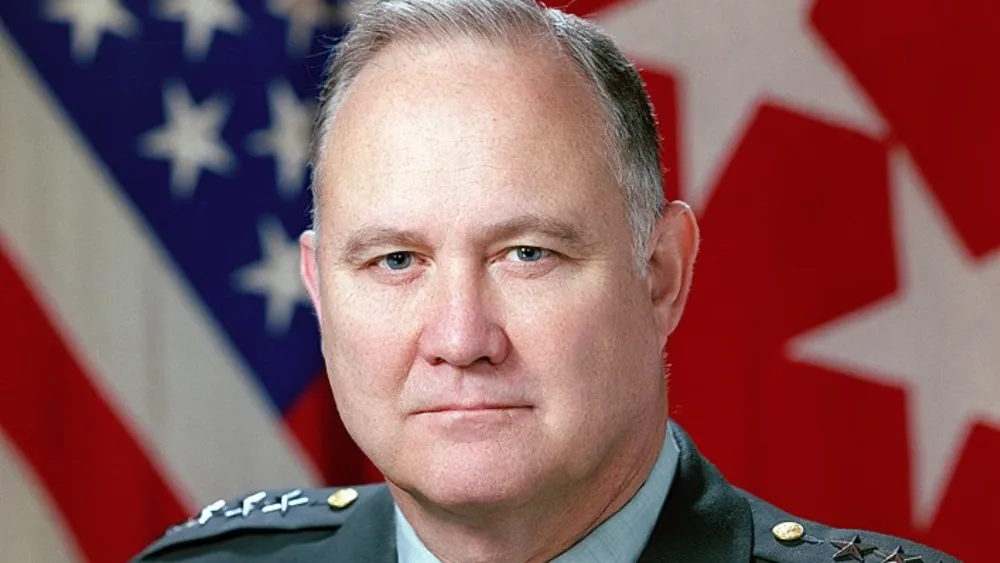Norman Schwarzkopf’s influence reached far beyond his military accomplishments, leaving a lasting legacy in the hearts and minds of the American people. His nickname, “Stormin’ Norman,” captured his tenacious leadership style and endeared him to the public, turning him into a household name during an international crisis.
As we embark on this journey through General Schwarzkopf’s life, we will explore the intricate layers of his character. We’ll talk about his early years growing up in a military family, to his rigorous education at West Point. All of these contributed to molding him into the exceptional leader he became.
We will also delve into the pivotal moments of his career. This includes his service in Vietnam, where he displayed remarkable courage and a deep commitment to the principles of duty.
His legacy is not limited to the battlefield. It extends to the classroom, lecture halls, and the countless individuals inspired by his experiences and leadership philosophy.
Norman Schwarzkopf: A Glimpse of Greatness
The Schwarzkopf family was deeply committed to military service, raising young Norman in an environment that revered the values of duty, patriotism, and sacrifice. His father, H. Norman Schwarzkopf Sr., not only served as a shining example but also instilled in his son a profound appreciation for the principles of leadership and service to the nation.
Norman’s time at the United States Military Academy at West Point shaped his character. It was here that he not only received a world-class education but also embraced the academy’s rigorous code of conduct.
The crucible of West Point instilled in him a commitment to academic excellence and a profound sense of responsibility to lead with integrity and unwavering ethics.
Norman Schwarzkopf’s early years clearly indicated that he was destined for greatness. His formative years, steeped in a legacy of service and sacrifice, provided the foundation upon which he would build an illustrious military career.
As we journey through his life, we will uncover the pivotal moments and decisions that propelled him toward becoming one of the most revered figures in American military history.
Early Career and Vietnam War
During the unruly years of the Vietnam War, General Norman Schwarzkopf’s dedication to his country and fellow soldiers shone brightly. His deployment to Vietnam marked a critical chapter in his military career. Moreover, he showcased not only his strategic acumen but also his commitment to those under his command.
As an advisor to the South Vietnamese Army during his initial tour in Vietnam, Schwarzkopf grappled with the complexities of counterinsurgency warfare.
His adaptability and diplomatic finesse demonstrated his ability to adapt to the challenging conditions of an unconventional conflict and his emphasis on building strong relationships with the South Vietnamese forces.
However, during his tenure as a battalion commander in Vietnam, his leadership qualities truly came to the forefront. His battalion faced the harsh realities of combat, but General Schwarzkopf’s steadfast dedication to the well-being of his troops remained unshaken.
He was not just a commander but a mentor and protector. Furthermore, his genuine concern for his soldiers earned him their deep respect and admiration.
His time in this war-torn nation was a testament to his ability to lead under the most challenging circumstances.
Rising Through the Ranks
After Vietnam, General Norman Schwarzkopf relentlessly pursued excellence in his military and academic endeavors. With the lessons learned from the crucible of war and the wisdom acquired from his father’s legacy, he ascended through the ranks of the U.S. Army.
His numerous command positions showcased his versatility as a military leader. Whether as a troop commander or a staff officer responsible for planning and strategy, General Schwarzkopf consistently demonstrated his ability to lead with precision and purpose. His reputation for strategic thinking and commitment to his troops continued to grow, setting the stage for even greater responsibilities.
The Gulf War
They appointed Schwarzkopf as the commander of U.S. Central Command and assigned him to assemble a multinational coalition to liberate Kuwait.
Schwarzkopf’s leadership during the Gulf War was nothing short of remarkable. He orchestrated a brilliant military campaign that achieved its objectives with remarkable speed and precision.
His ability to plan, combined with his knack for maintaining the morale of his troops, made him a true wartime leader. His daily press briefings are filled with charisma and candor. Therefore, it made him a household name in the United States and worldwide.
Legacy and Post-Military Life of Norman Schwarzkopf
Schwarzkopf left the service in 1992 after the Gulf War. He received much acclaim for his retirement, including the Presidential Medal of Freedom. He continued participating in numerous charitable projects and rose to fame as a public speaker, imparting his wisdom on military tactics and leadership.
Tragically, on December 27, 2012, General Norman Schwarzkopf passed away at 78. His passing signaled the end of a phase in American military command. His legacy continues to be written about in history books. Moreover, he inspired innumerable military leaders and soldiers.

Leading the Coalition
General Norman Schwarzkopf’s legacy extends beyond his military achievements. He is an enduring symbol of leadership, integrity, and unwavering dedication to his country. His role in the Gulf War is a testament to his strategic brilliance and commitment to the well-being of his troops.
Schwarzkopf’s leadership in the Gulf War was nothing short of amazing. Moreover, he was tasked with putting together a global alliance to free Kuwait from Saddam Hussein’s Iraq. Also, his ability to plan and execute complex military operations precisely was a sight to behold, and it swiftly achieved its objectives, capturing the world’s attention.
Additionally, his daily press briefings, filled with charisma and candor, kept the public informed.
But also served as a source of inspiration for the troops and their families back home. He understood that strong leadership was not just about tactics and strategy but about caring for the well-being of those entrusted to his command.











